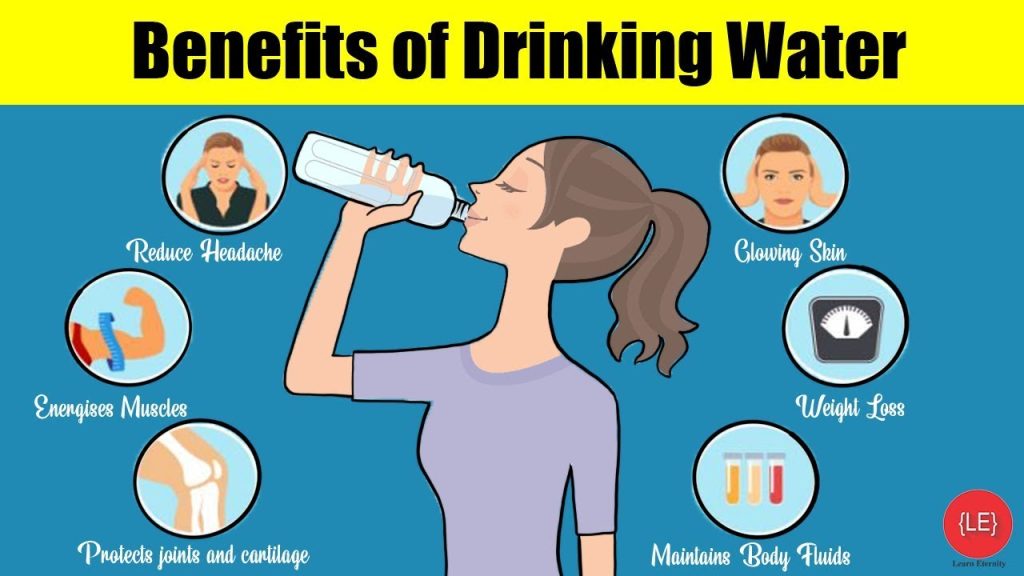Water is essential for life, and understanding the importance of drinking water is crucial for maintaining optimal health. Our bodies are composed of approximately 60% water, making hydration a key factor in our overall well-being. From regulating body temperature to aiding digestion, the benefits of proper hydration are vast and varied. In this article, we will explore the significance of drinking water and how it impacts various bodily functions, ensuring you grasp why staying hydrated should be a priority in your daily routine.
As we delve deeper into the importance of drinking water, you will learn about the various roles water plays in our bodies, including its impact on physical performance, cognitive function, and skin health. We will also discuss the signs of dehydration and how to recognize when your body needs more fluids. Additionally, we will provide practical tips on how to incorporate more water into your daily life, making hydration an effortless habit.
By the end of this article, you will not only understand the critical role that water plays in your health but also be equipped with the knowledge to make informed choices about your hydration habits. So, if you’re ready to unlock the secrets of staying hydrated and discover how it can enhance your life, keep reading to learn more about the importance of drinking water!
Hydration and Its Role in Body Function
Water is essential for maintaining hydration, which is crucial for the proper functioning of the body. Every cell, tissue, and organ in the body requires water to function optimally. When the body is adequately hydrated, it can regulate temperature, transport nutrients, and remove waste effectively. Dehydration can lead to a range of health issues, including fatigue, headaches, and impaired cognitive function.
Moreover, hydration plays a significant role in physical performance. Athletes and individuals engaging in regular exercise must ensure they drink enough water to replace fluids lost through sweat. Studies have shown that even mild dehydration can negatively impact endurance, strength, and overall athletic performance. Therefore, understanding the importance of drinking water is vital for anyone looking to maintain their health and fitness levels.
The Impact of Water on Skin Health
Drinking sufficient water is not only beneficial for internal health but also plays a significant role in maintaining healthy skin. Hydration helps to keep the skin moisturized, improving its elasticity and overall appearance. When the body is well-hydrated, it can better flush out toxins, which can lead to clearer skin and a reduction in acne and other skin conditions.
Additionally, water helps to combat signs of aging. Dehydrated skin can appear dull and more prone to wrinkles. By ensuring adequate water intake, individuals can promote a youthful glow and maintain skin health. Incorporating water-rich foods into the diet, such as fruits and vegetables, can also enhance skin hydration and provide essential nutrients.
Water’s Role in Weight Management
Drinking water can be a powerful tool in weight management. Studies have shown that consuming water before meals can help reduce appetite, leading to lower calorie intake. This is particularly beneficial for those looking to lose weight or maintain a healthy weight. Additionally, water has no calories, making it an ideal beverage choice compared to sugary drinks that can contribute to weight gain.
Furthermore, staying hydrated can boost metabolism. Some research suggests that drinking cold water may temporarily increase the number of calories burned as the body works to warm the water to body temperature. Therefore, incorporating adequate water intake into a weight management plan can support overall health and fitness goals.
The Connection Between Water and Mental Health
Hydration is closely linked to mental health and cognitive function. Studies have indicated that even mild dehydration can lead to mood swings, increased anxiety, and difficulty concentrating. The brain is composed of approximately 75% water, and maintaining hydration is essential for optimal brain function.
Moreover, drinking enough water can help alleviate symptoms of stress and fatigue. When the body is well-hydrated, it can better cope with stressors, leading to improved mental clarity and emotional stability. Therefore, prioritizing water intake can be a simple yet effective strategy for enhancing mental well-being.
Tips for Staying Hydrated Throughout the Day
To ensure adequate hydration, it is essential to develop habits that promote regular water intake. One effective strategy is to carry a reusable water bottle throughout the day, making it easier to sip water regularly. Setting reminders on your phone or using hydration tracking apps can also help maintain awareness of your water consumption.
Incorporating water-rich foods into your diet, such as cucumbers, oranges, and watermelon, can further enhance hydration. Additionally, establishing a routine, such as drinking a glass of water before each meal, can help ensure you meet your daily hydration goals. By implementing these tips, individuals can prioritize their health and well-being through proper hydration.
Water is essential for life and plays a crucial role in maintaining overall health. Here is a summary of its importance:
| Aspect | Importance |
|---|---|
| Hydration | Maintains the balance of bodily fluids, which is vital for digestion, absorption, circulation, and temperature regulation. |
| Physical Performance | Improves physical performance, especially during intense exercise or high heat, preventing fatigue and overheating. |
| Detoxification | Helps in flushing out toxins and waste products from the body through urine and sweat. |
| Skin Health | Contributes to skin hydration and elasticity, reducing the appearance of wrinkles and dryness. |
| Weight Management | Aids in weight loss by promoting satiety and reducing calorie intake when consumed before meals. |
| Cognitive Function | Supports brain function, improving concentration, alertness, and mood, while preventing headaches and fatigue. |
| Digestive Health | Facilitates digestion and prevents constipation by helping to dissolve nutrients and fiber. |
In conclusion, drinking adequate amounts of water is vital for maintaining health and well-being. It is recommended to drink at least 8 glasses (about 2 liters) of water daily, but individual needs may vary based on activity level, climate, and overall health.




